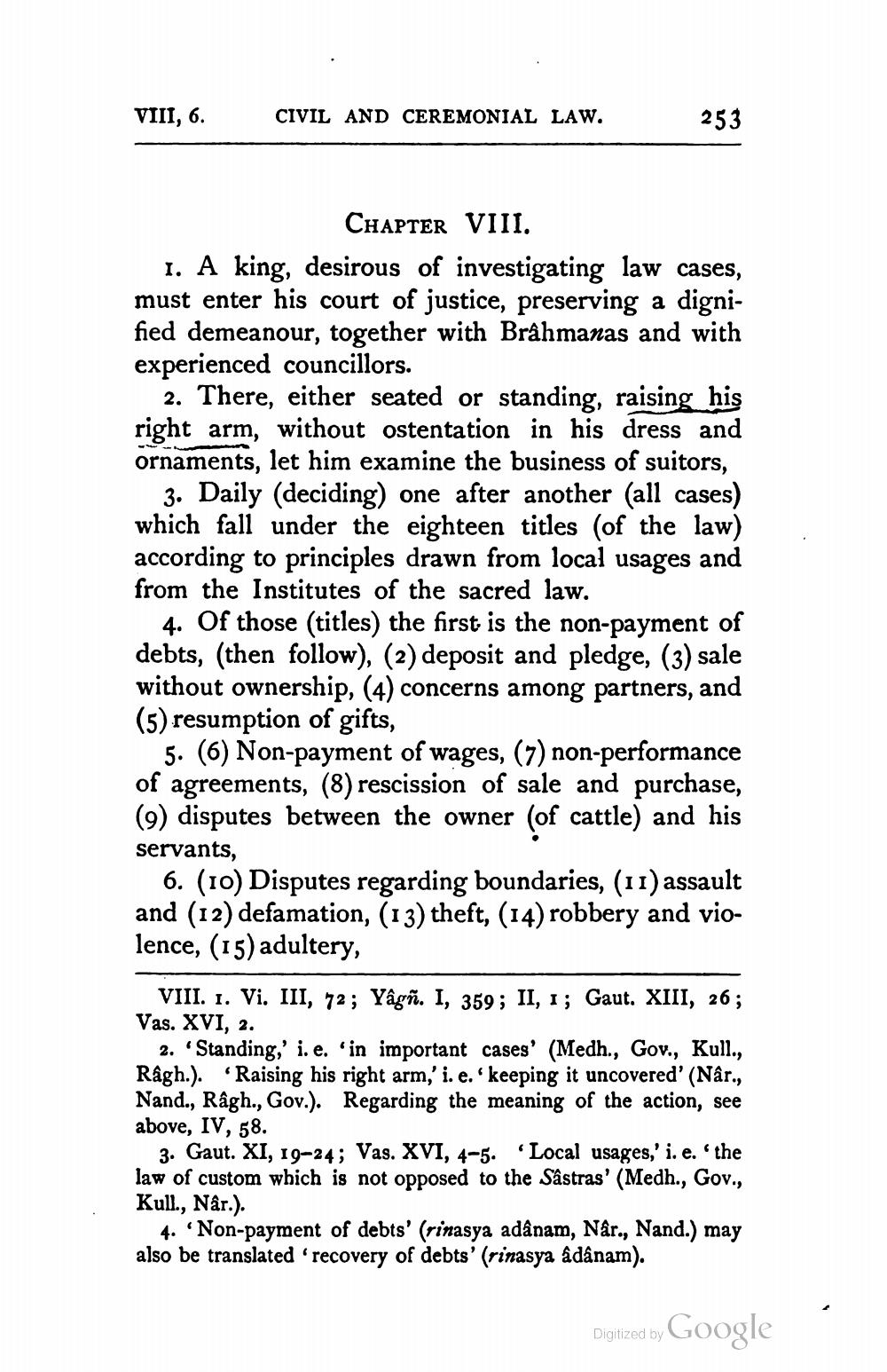________________
VIII, 6.
CIVIL AND CEREMONIAL LAW.
253
CHAPTER VIII. 1. A king, desirous of investigating law cases, must enter his court of justice, preserving a dignified demeanour, together with Brâhmanas and with experienced councillors.
2. There, either seated or standing, raising his right arm, without ostentation in his dress and ornaments, let him examine the business of suitors,
3. Daily (deciding) one after another (all cases) which fall under the eighteen titles (of the law) according to principles drawn from local usages and from the Institutes of the sacred law.
4. Of those (titles) the first is the non-payment of debts, (then follow), (2) deposit and pledge, (3) sale without ownership, (4) concerns among partners, and (5) resumption of gifts,
5. (6) Non-payment of wages, (7) non-performance of agreements, (8) rescission of sale and purchase, (9) disputes between the owner (of cattle) and his servants,
6. (10) Disputes regarding boundaries, (11) assault and (12) defamation, (13) theft, (14) robbery and violence, (15) adultery,
VIII. 1. Vi. III, 72; Yâgñ. I, 359; II, 1; Gaut. XIII, 26; Vas. XVI, 2.
2. 'Standing,' i. e. 'in important cases' (Medh., Gov., Kull., Râgh.). "Raising his right arm,' i. e. keeping it uncovered' (Nar., Nand., Râgh., Gov.). Regarding the meaning of the action, see above, IV, 58.
3. Gaut. XI, 19-24; Vas. XVI, 4-5. Local usages,' i.e. 'the law of custom which is not opposed to the Sâstras' (Medh., Gov., Kull., Når.).
4. 'Non-payment of debts' (rinasya adânam, Nár., Nand.) may also be translated 'recovery of debts' (rinasya adânam).
Digitized by
Digitized by Google




